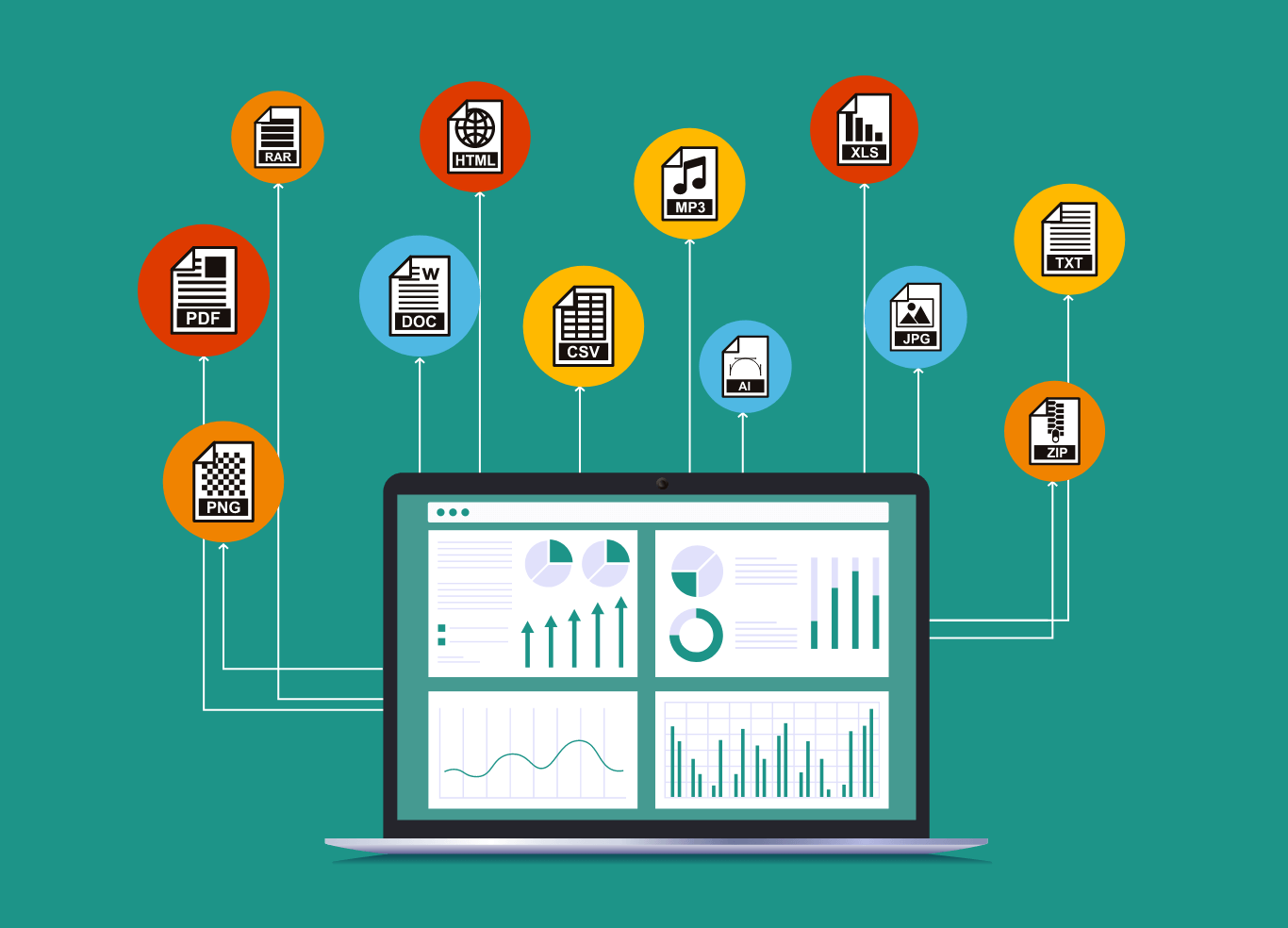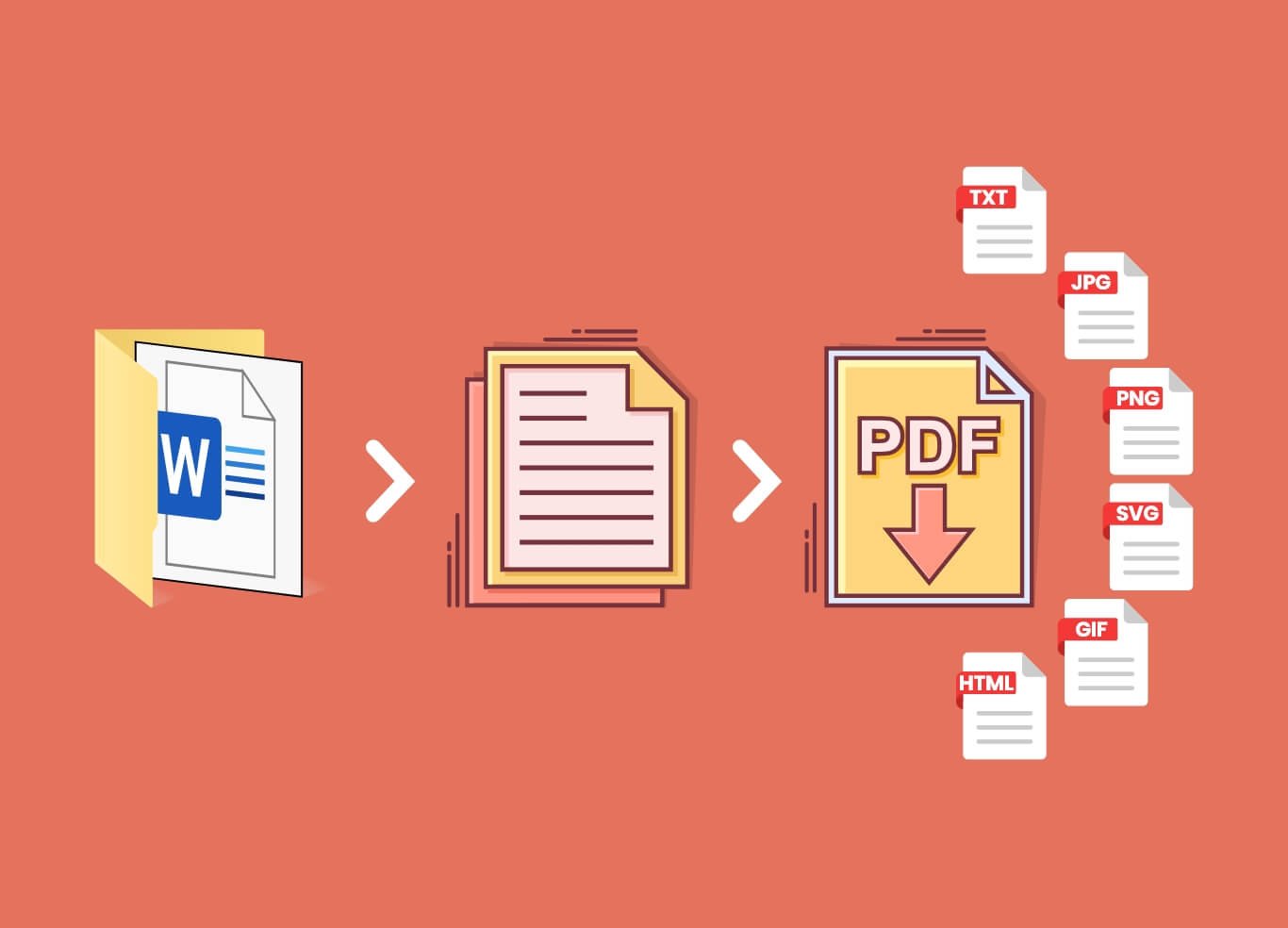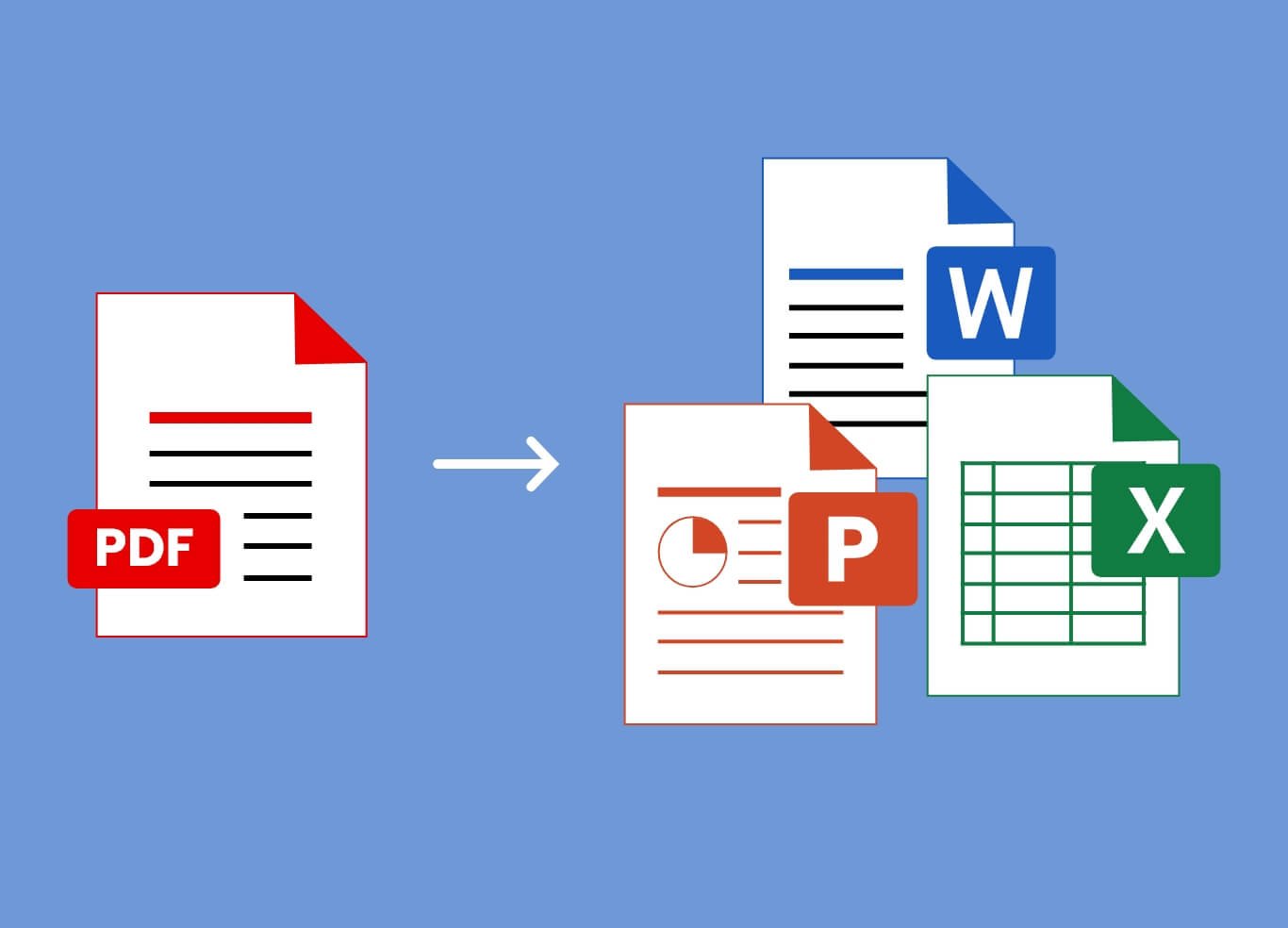Digitalization has taken over the business horizon, enabling professionals to streamline operations. The impact of digitalization has led to a change in business approach and how teams manage and work efficiently in the market. As a matter of fact, digitalization has generated massive datasets for businesses. Since data is a primary resource for any industry’s expansion and growth, optimizing its use in the digital world is crucial. In today’s digital landscape, data is a pivotal asset and hence demands for accurate management and accessibility. Small or large-scale organizations on the modern horizon require data to evaluate future market scenarios, analyze competitors, streamline daily workflow, and much more.
Therefore, managing data effectively requires more than just storing it; it also ensures that the format is compatible with different systems; it is an accessible and organized structure. It helps to make informed decisions while data can be optimally used for various purposes. A large set of data is hard to manage, considering its different formats. Data conversion helps bring a comprehensive solution to use data at its full potential.
Using raw data is insignificant due to incompatibility to different systems, erroneous nature, and complexity in understanding. Moreover, businesses from various sectors are creating and collecting more data as they expand and demand. This calls for regular management as well as documentation of information for future access. Here, data conversion services are useful for different organizations to manage large sets of information and store it in a more comprehensive format for quick access. Nonetheless, it helps improve the organization’s efficiency as data is standardized format for further use.
As discussed, data in today’s digital age is a valuable asset for firms that helps to make important decisions, enhance productivity, enable detailed analysis, and much more. Due to the increasing volume and constant changes in the market, organizations from different sectors find it a cumbersome task to manage and store. Which is accurately implementing a data conversion process enables businesses to have hands-on on organized and structured data that can be utilized for processing and analysis. As the growing significance of data in the corporate realm is constantly rising that is why the demand of converting the data format is escalating. Therefore, this detailed data conversion guide for businesses describes its impact, tools, and benefits. Let’s continue further for a better understanding.
Amplify Business Growth with Data Conversion Services at Uniquesdata
What Refers to Data Conversion?
In the realm of ever growing economy, data comes in various formats, serving different purposes per the utility. However, varying formats and raw structures cannot provide valuable insights. Therefore, in order to utilize the full potential of data, managing, storing, and organizing in a structured format is essential. This is where the crucial role of conversion comes in. It is a large part of data digitization services, which often refers to making the data digitally available and stored. Once the data is digitized, it is essential to ensure its format compatibility with other software and targeted systems for platforms. Since not all formats are directly compatible in nature, they don’t bring accurate results or perform precisely in the system. Hence, data conversion services play a crucial role for businesses to manage and store the information in desired format supported by the target system. The process is defined as converting data format to another to make it compatible with the target system, software, or any other platform.
Having a compatible nature across various platforms enables business professionals to store crucial data accurately, have quick access, update the information in the desired format, and more. As a matter of fact, data migration and conversion go hand in hand as conversion of data is part of data migration. Typically, the process of transforming from one format to another involves restructuring information to align with the new environment while maintaining its integrity. Moreover, small and large scale businesses usually operate with multiple systems that store the information and collect the valuable insights in various formats.
This is why making data conversion an essential business process can be beneficial and can escalate operations accurately. Let’s take it for example: converting a docs file into PDF format requires a PDF conversion service. Furthermore, the conversion can only support modern platforms or systems. The example gives a hunch about transforming the file format, although the bigger picture is for large and complex data files, where data conversion methods offer holistic solutions. It helps to standardize the complex data, ensuring it supports seamless access across different departments of an organization.
Just like the example, a PDF format file can be easily shared, accessed, and transferred to different authorities without changing the content. This process helps to make data access seamless, save crucial time, and enhance decision-making with consistent, accurate, and formatted data. As the concept of data format conversion is vast, it entails various types that benefit an organization according to their utility. Let’s discuss the types of data conversion.
Types of Data Conversion Service for Business
As discussed, the importance and definition of converting data from one format to another entails various types that help businesses make the crucial information compatible. Each type allows firms to improve data accessibility and enhance operational workflow. As a matter of fact, businesses from different sectors generate or collect various types of data in varied formats such as invoices, reports, HTML, documents, audio, video, and other media types. Let’s explore some of the conversion services.
- Document conversion
- Media Conversion
- Database conversion
- PDF/HTML/XML conversion
- Legacy system conversion
These are some of the major types of formats that can be easily converted into describe format. Moreover, it also depends on the type and nature of the business to manage and make the information accessible with automated data conversion techniques. Due to the rising demands and ever-increasing volume of data in the business landscape, it helps firms to manage and store accurately while having the added advantage of making the operational work seamless. Other than this, data conversion technology has a plethora of benefits that not only transform file format but also enable business professionals to stay ahead of the dynamic market curve. Here are detailed insights into the key advantages of data conversion.
Key Advantages of Data Conversion for Businesses
Accuracy in data, consistency, accessibility, and proper storage are some of the pillars of a business’s success. For ages, data has been a strong backbone for any firm, regardless of its size and nature. Data is a crucial asset for strategizing further business operations, from extracting valuable insights into customer behavior to mapping out some of the patterns. Hence, the conversion of data in any organization allows one to make critical, efficient, and strategic data-driven decisions to opt for novel ways to generate revenues. Since conversion services bring easy access, it also brings several benefits to firms in different ways. Following are;
Benefits of Data Conversion in Businesses
Enhanced Data Accessibility
Streamlined Business Operations
Legacy System Migration
Improved Data Quality
Better Decision-Making
Regulatory Compliance
Increased Interoperability
- Enhanced Data Accessibility: Converting raw data into a standardized format empowers professionals to access and utilize information as required without investing crucial time or resources. Moreover, data accessibility also enhances the quality of services, customer experience, and seamless workflow in the organization.
- Improved Data Quality: Businesses from various sectors collect and generate data from multiple sources. Usually, the generated data is in raw format, which can be insignificant for driving in-depth insights. However, secure data conversion techniques help with data cleansing, validation, and standardization, resulting in higher data accuracy, operational efficiency, and consistency in business workflow.
- Streamlined Business Operations: By integrating data from various sources, businesses can automate workflows, reduce manual errors, improve operational efficiency, and stay ahead of the market competition. One significant advantage of data conversion is that it empowers professionals to quickly access the required information without investing crucial time. This also allows faster query execution, resulting in a seamless customer experience.
- Better Decision-Making: By accurately converting file types, businesses leverage the power of data to drive decisions and gain rich insights. Unified and accurate data provides a solid foundation for insightful analysis, enabling professionals to curate strategies and achieve desired results.
- Legacy System Migration: When migrating to new systems, data conversion services ensure a smooth transition and minimize data loss during the process. Conversion transforms data format type, while migration moves the existing data to a different platform or database. It usually happens during the amalgamation of two ventures, shift in premises, change of technology, and more.
- Regulatory Compliance: Many industries require specific data formats for compliance purposes and driving out insights. For example, the healthcare sector cannot manage with XML or docs data file. They require in PDF format for medical reports that can be easily accessed and shared. Data conversion helps businesses adhere to these regulations according to sector type and ensure the security of sensitive data as well.
- Increased Interoperability: One of the prime advantages of data conversion is enabling different systems to communicate with each other. A doc file can support the internal target system and a third-party system as well. Converting the data format brings higher efficiency and allows businesses to enhance interoperability within different departments or third parties.
These are some of the key benefits of implementing a data conversion approach in today’s business landscape. The list of advantages can go long; however, these are some of the key perks that also signify the importance of converting data from one format to another. Further, the data is processed to analyze rich insights and make strategic decisions. Although these benefits are highlighted as a result, there are few standard and secure data conversion techniques that allow organizations to have accurate results per the requirements. Discover the key techniques to convert data format.
Standard Data Conversion Techniques for Accurate Results
The process of transforming one format to another demands keen attention to detail. Although there are few methods and some data conversion tools or software that allow the convert the format according to the specific information. This primarily helps businesses to have secured and seamless results that can be further used for several purposes. After the intricate implementation of data digitization services, it is essential to follow standard methods or practices for converting data to get hands on the desired results. Let’s focus on simple techniques that can be leveraged for data conversion.
Common Data Conversion Techniques
OCR Technology
Data mapping and transformation
Data Digitization
Converting units of measurement
- OCR Technology: OCR has become a go-to tool for the profession as it converts handwritten documents into digitized formats. This technique allows experts to save time without any hassle while the paper-based file can be accessed and stored in the digital database or system.
- Data Digitization is a common technique and is a significant part of the process. Digitization helps to identify potential errors, missing values, and irrelevance of the content. This allows the conversion process to become seamless and reduces the scope of errors.
- Data mapping and transformation are two of the most advanced practices for accurate data conversion results. They involve setting unique rules that define mapping entries from one format to another. Typically, they are mostly useful for large and complex data types.
- Converting units of measurement: Since data comes in various formats, numerical or unit measurements are also one type. Units of measurement are used in different sectors, such as miles, kgs, mg, km, and more, mostly for precise details. Conversion of one unit to another plays a significant role in driving out actual results.
These practices or techniques are leveraged for large volume and complex data that is formatted in different file types. It is essential to opt for the best data conversion software for optimum results and enhancing business efficiency. As a matter of fact, the process of format conversion may seem simple; however, it encompasses a fair share of challenges and complexity. The intricate process requires specialized skills and technology proficiency to gain actual results.
Regardless of size and nature, businesses are occupied with multiple operational activities and lack the resources to implement the process. Therefore, it is advisable to outsource data conversion services to a reliable outsourcing firm with expertise and significant experience in the data conversion process. The team of professionals at outsourcing firms are well versed in the process and strictly adhere to compliance, standards, and codes while ensuring the security of crucial information. Uniquesdata is a renowned outsourcing data conversion service provider with an exceptional team, updated infrastructure, and different pricing plans.
Towards the End
Data conversion has become indispensable for businesses dealing with large and complex data. It plays a crucial role in keeping the data aligned and in a format compatible with the target system, platform, or software.



